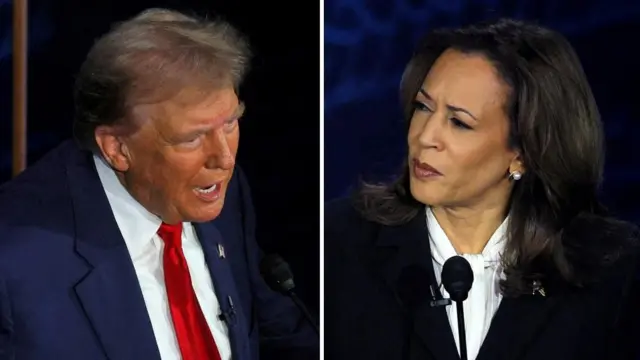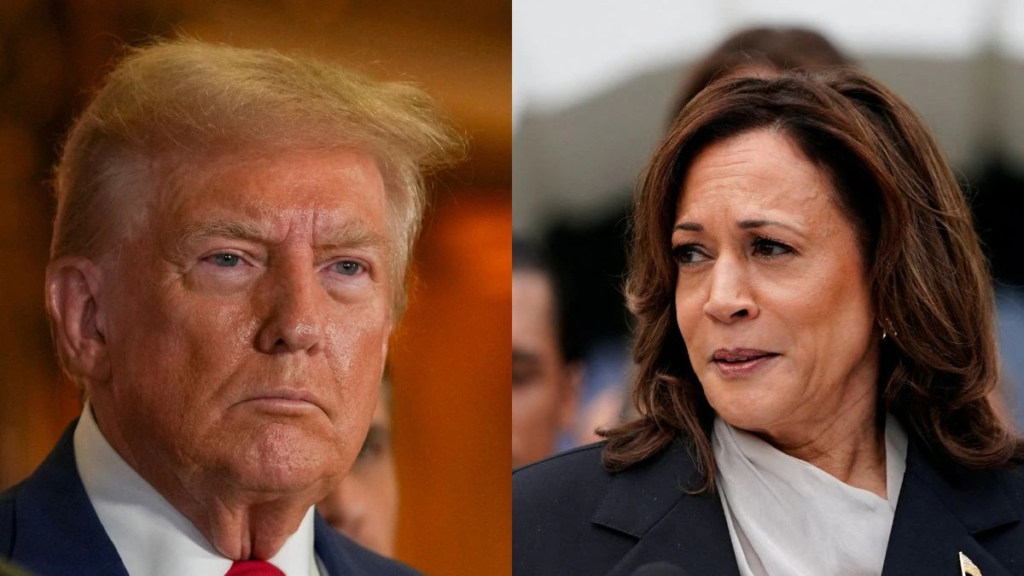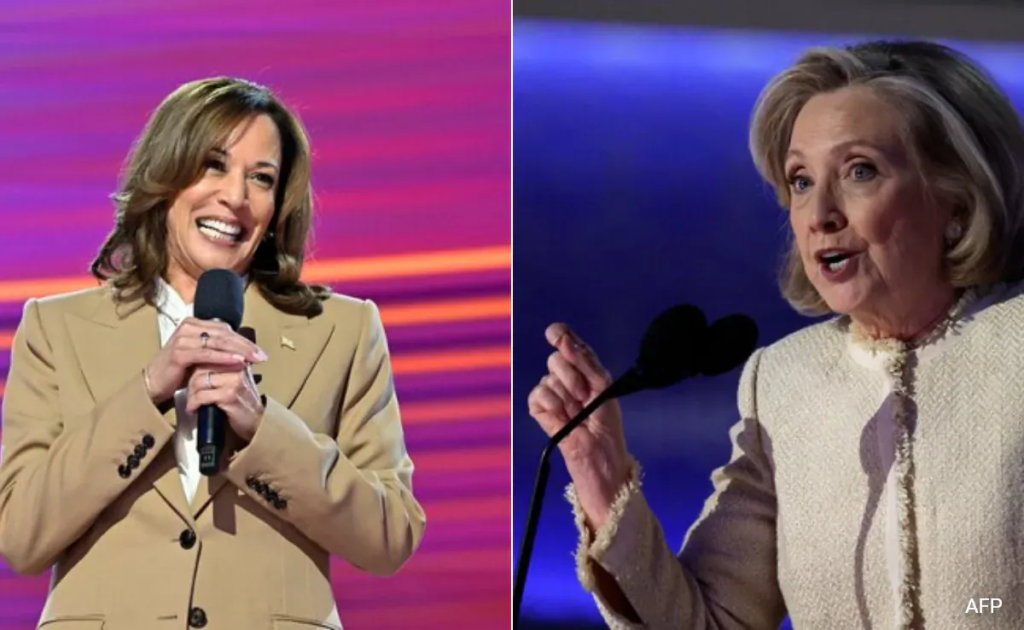On March 21, 2025, President Donald Trump issued a memorandum revoking the security clearances of several high-profile political figures, including former Vice President Kamala Harris, former Secretary of State Hillary Clinton, and former President Joe Biden, along with members of Biden’s family. The move, which also targeted other prominent Democrats and critics of Trump, has sparked widespread discussion about its implications for national security, political retribution, and the tradition of granting former officials access to classified information. This decision comes amid ongoing investigations and a growing political divide in Washington, raising questions about the motivations behind the revocations and their potential impact.

A Broad Sweep of Revocations
The executive order, announced late on a Friday night, listed 15 individuals whose security clearances were rescinded, effectively barring them from accessing classified information and entering secure government facilities without an escort. In addition to Harris, Clinton, and Biden, the list included former Secretary of State Antony Blinken, former National Security Advisor Jake Sullivan, former Deputy Attorney General Lisa Monaco, New York Attorney General Letitia James, and Manhattan District Attorney Alvin Bragg. Notably, the memorandum also targeted two Republicans, former Representatives Liz Cheney and Adam Kinzinger, who served on the House Select Committee investigating the January 6, 2021, Capitol attack. Other individuals named include former Trump administration officials Fiona Hill and Alexander Vindman, who testified during Trump’s first impeachment trial, and attorneys Norm Eisen and Mark Zaid, known for their legal challenges against Trump or his allies.
Trump’s memorandum stated, “I have determined that it is no longer in the national interest for the following individuals to access classified information.” The order directed all executive departments and agencies to revoke active security clearances and immediately rescind access to classified materials. This action builds on earlier moves by Director of National Intelligence Tulsi Gabbard, who had already revoked clearances for some of the named individuals earlier in March, including Blinken, James, and others.

Context and Precedent
The revocation of security clearances for former presidents, vice presidents, and top officials is a departure from longstanding tradition. Typically, former high-ranking officials retain their clearances as a courtesy, allowing them to provide advice on national security matters or work with private contractors. However, this tradition has been tested in recent years. In 2021, then-President Joe Biden revoked Trump’s access to intelligence briefings, citing his “erratic behavior” following the January 6 Capitol attack. Trump referenced this precedent in a February 2025 social media post, stating that Biden’s decision to bar him from national security briefings justified his own actions.
The timing of the memorandum, issued hours after Trump arrived at his Bedminster, New Jersey, golf property for the weekend, has fueled speculation about its political motivations. Critics argue that the move is part of a broader pattern of retribution against Trump’s political opponents, particularly those involved in legal actions or investigations against him. For instance, Letitia James prosecuted Trump for fraud, resulting in a $453 million verdict, while Alvin Bragg led the New York “hush money” case, which led to Trump’s conviction on 34 state counts of falsifying business records. The inclusion of Cheney and Kinzinger, vocal Republican critics who supported Trump’s second impeachment, further suggests a focus on those who have publicly opposed him.
Reactions and Implications
The response to the revocations has been mixed, reflecting the polarized political climate. Some, like X user @CubanOnlyTrump, celebrated the decision as a fulfillment of campaign promises, stating, “This is EXACTLY what I voted for.” Others, such as @MariaTCardona, criticized the move as “immature, insecure, and petulant,” calling it “unpresidential” and an embarrassment for a world leader. On X, sentiments ranged from support for targeting additional figures like former President Barack Obama to skepticism about the practical impact of the revocations.
Several individuals named in the memorandum downplayed the significance of the decision. Adam Kinzinger, who retired from the military a year ago, noted on X that he no longer holds an active security clearance, calling the move misguided. Similarly, Mark Zaid, a national security lawyer, remarked that this was the “third time” his clearance had been reportedly revoked, yet he had not received formal notification. Alexander Vindman, whose clearance was also targeted, dismissed the action as “meaningless,” noting that his clearance had been inactive for five years.

While the revocations may have limited immediate practical effects—many of the named individuals no longer rely on classified access for their current roles—the symbolic weight is significant. The move signals a deepening rift in Washington, with Trump leveraging his authority to target perceived adversaries. Critics argue that this could undermine national security by discouraging experienced officials from participating in future administrations, while supporters view it as a necessary step to protect sensitive information from those Trump deems untrustworthy.
Ongoing Investigations and Broader Context
The memorandum’s reference to “ongoing investigations” has drawn attention, though specific details remain unclear. Trump’s legal battles, including investigations into his handling of classified documents at Mar-a-Lago between his first and second terms, provide context for his focus on security clearances. A 2023 indictment by Justice Department special prosecutor Jack Smith alleged that Trump mishandled classified documents and obstructed their return, though the investigation was wound up after his return to office. In contrast, a 2024 Justice Department report found that Biden had improperly retained classified documents from his vice presidency but noted his cooperation with investigators.
The revocations also follow other actions by the Trump administration, such as the termination of Secret Service protection for Biden’s adult children, Hunter and Ashley, and the revocation of clearances for 50 former intelligence officials who signed a 2020 letter suggesting Russian disinformation in connection with Hunter Biden’s laptop. These moves suggest a broader effort to limit the influence of former officials and critics, particularly those linked to investigations or public opposition to Trump’s agenda.
What’s Next?
The long-term impact of the security clearance revocations remains uncertain. For individuals like Harris and Clinton, who are no longer in government roles, the loss of clearance may have little practical effect but carries symbolic weight as a public rebuke. For others, such as attorneys involved in ongoing legal challenges, the revocations could complicate their work, though figures like Norm Eisen have vowed to continue their efforts, with Eisen stating on X that the move only motivates him to file more lawsuits.
The decision also raises questions about the future of bipartisan cooperation in national security. By targeting both Democrats and Republicans, Trump’s actions may discourage former officials from engaging in advisory roles, potentially isolating the administration from valuable expertise. As the political landscape continues to evolve, the revocations underscore the challenges of navigating a deeply divided Washington.
For more information on this developing story, readers can follow updates from trusted sources like Fox News, BBC, or The New York Times. As investigations and political dynamics unfold, the implications of these revocations will likely remain a topic of intense debate.
Also Read :- Ole Miss Baseball Shines in 2025: A Season of Triumphs and Challenges






